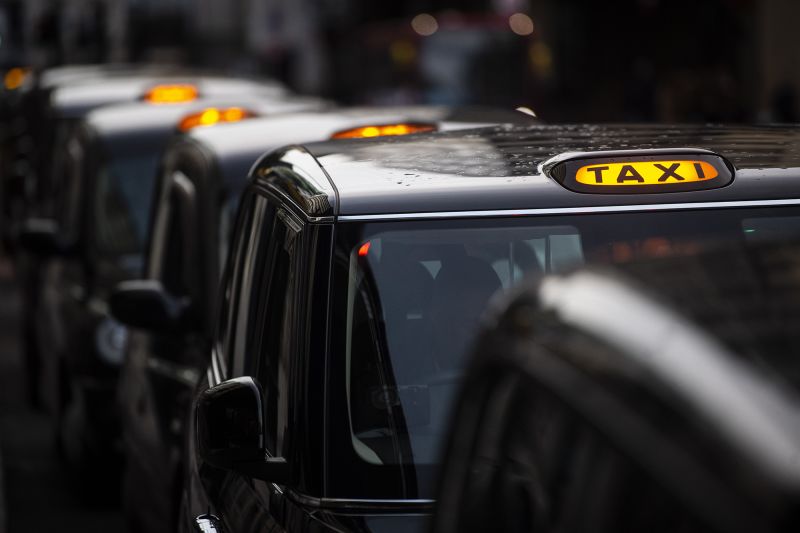
Uber to Compensate Taxi Drivers with $179 Million in Australia

Uber has agreed to provide nearly 272 million Australian dollars ($179 million) in compensation to over 8,000 taxi and hire car drivers in Australia for the financial losses incurred since the company's establishment in 2012. This significant decision comes following legal representation advocating for the drivers, marking a pivotal moment in the ongoing relationship between traditional taxi services and ride-sharing platforms.
Uber has agreed to compensate more than 8,000 taxi and hire car drivers in Australia with almost 272 million Australian dollars ($179 million) for losses they faced when the company started operating in the country back in 2012. Lawyers representing the drivers announced this on Monday.
According to Maurice Blackburn Lawyers, the law firm that initiated the class action suit in 2019, this settlement is the fifth-largest in Australia's history. Uber has acknowledged reaching an initial agreement but has not provided any specifics about the proposed settlement.
Maurice Blackburn expressed pride on their Facebook page, stating, "This case succeeded where others have failed. We’re proud that thousands of people put their faith in us to deliver this outcome, and to hold Uber to account."
Since its launch in 2009, Uber has been involved in multiple lawsuits globally from passengers, governments, and its drivers. The company has also been making "significant contributions to various state-level taxi compensation schemes" in Australia since 2018.
The bitter conflicts between Uber drivers and traditional taxi operators have calmed down in recent years, as the company has been gaining approval to operate in various countries. In many places, Uber now collaborates with taxi drivers. For instance, in November, it revealed a partnership with London's famous black cabs, allowing cab drivers to receive Uber trip referrals.
In Australia, a lawsuit claimed that Uber had been operating unlawfully in four out of the country's six states — Victoria, New South Wales, Queensland, and Western Australia. This involved using vehicles and drivers that did not possess the required licenses and accreditations.
"This led to a decrease in earnings for licensed taxi drivers, operators, and hire car operators. Additionally, it caused a decline in the worth of taxi licenses," mentioned Elizabeth O'Shea, the main lawyer handling class actions at Maurice Blackburn, in a video shared on the firm's website.
A queue of black cabs outside Victoria Station in London in November 2020.
A queue of black cabs outside Victoria Station in London in November 2020.
Victoria Jones/PA Images/Getty Images
Related article
Uber announces partnership with London’s iconic black cab taxis
Uber Australia mentioned on its website that when it first started over ten years ago, there were no regulations for ride-sharing anywhere in the world. However, things have changed now, and Uber is now regulated in every state and territory in Australia. The company stated that governments now acknowledge Uber as a significant player in the country's transportation industry.
With the proposed settlement today, we are putting these old issues behind us.
Even though this particular case is now resolved, Uber still has to deal with other lawsuits in the US and other countries regarding how it categorizes its drivers. According to their most recent annual report, Uber mentioned that their business could suffer if drivers were to be classified as employees or workers instead of independent contractors.
In 2021, Uber had to reclassify tens of thousands of its drivers in the United Kingdom as “workers” due to a UK Supreme Court ruling. This change now entitles drivers to a minimum wage, vacation time, and a pension.
Last year, New York Attorney General Letitia James directed Uber to pay $290 million into a settlement fund. This was in response to the revelation that Uber had been withholding certain pay from drivers and denying them certain benefits under New York labor laws. Additionally, Lyft was also required to contribute $38 million to a similar fund.
Dhruv Tikekar contributed reporting.
Editor's P/S:
The settlement between Uber and taxi drivers in Australia marks a significant victory for drivers who faced financial losses due to the company's entry into the market. The size of the settlement, the fifth-largest in Australia's history, reflects the impact that Uber's operations had on the taxi industry. The fact that Uber has acknowledged the settlement and expressed a desire to put the past behind them suggests that the company is committed to resolving these issues and moving forward in a more collaborative manner.
However, the settlement also highlights the ongoing challenges faced by Uber and other ride-sharing companies regarding the classification of their drivers. The reclassification of drivers in the United Kingdom and the settlement in New York over withheld pay and benefits indicate that governments and regulators are increasingly scrutinizing the employment practices of these companies. Uber's business model relies on the ability to classify drivers as independent contractors rather than employees, which allows the company to avoid paying benefits and minimum wage. As the legal landscape continues to evolve, Uber and other ride-sharing companies will need to adapt their operations to comply with labor laws and protect the rights of their drivers.













